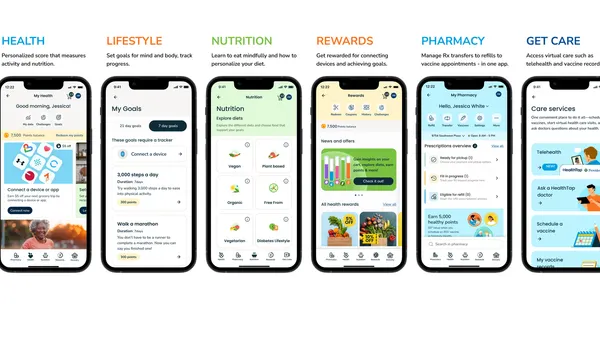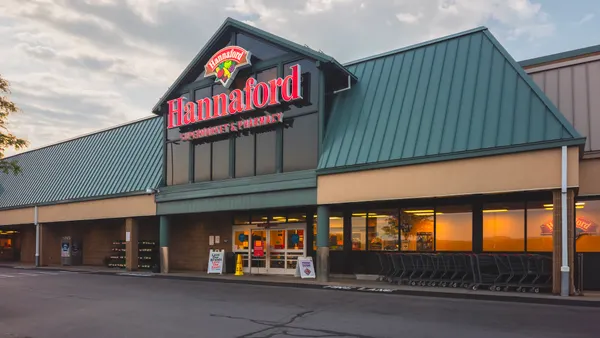Dive Brief:
- Good Food Holdings, which oversees West Coast chains Bristol Farms, New Seasons Market and Metropolitan Market, has selected Neil Stern as its new CEO, effective Oct. 1. Stern, who confirmed the news in an interview, will take the place of Managing Director Matt Turnbull, who will exit the company at the end of November after the role transition concludes.
- Stern, who has served on Good Food's board for two years and is a senior partner at retail strategy and consulting firm McMillanDoolittle, said he’ll bring his years of experience working with parent company E-mart to his new role at the Carson, California-based company, whose regional grocery stores stretch from Seattle to San Diego.
- While Good Food is eying a national footprint, Stern said the West Coast is the focal point for the near future. “We’re planning on opening more stores for these banners and then we’ll selectively look at further acquisitions,” Stern said. “The first priority is filling up the coast.”
Dive Insight:
Stern is coming full circle with his new plans to move back to California and head up Good Food Holdings.
He began his career in Southern California thirty-five years ago as a consultant working with Vons, a supermarket division of Albertsons, to develop its Pavilions grocery store banner. Now, he is set to return to the region as CEO of the company whose Bristol Farms banner competes with Pavilions.
In the years since then, Stern has worked with grocers like Publix and Harris Teeter and mass retailers like E-Mart as a retail consultant and co-authored two books on retail strategy.
About 12 years ago, Stern said he began working with E-mart on the South Korean retailer’s private label. “It was essentially taking Western-style private label program and developing that in the Korean market,” he said.
Fast forward about a decade later and Stern was on the team that oversaw E-mart's acquisition of Good Food Holdings for $270 million in January 2019, followed by the holding company’s acquisition of Portland, Oregon-based New Seasons Market and its wholly owned, California-based subsidiary New Leaf Community Markets one year later.
Because of his involvement in both of those acquisitions, Stern said, "I sort of feel like I know the company extremely well, even though the role itself is new." As CEO, Stern said he will be in a redefined version of Turnbull’s role, working closely with the brands’ CEOs. Altering the managing director role is the only planned management change, Stern said.
The brands, which also include Bristol Farms and Lazy Acres Natural Market in California and Metropolitan Market in Washington, altogether totaling more than 40 stores, have their own leadership teams, operating philosophies and marketing strategies, according to Good Food Holdings’ website.
Good Food Holdings is looking to normalize operations and integrate the two new brands following disruption from the coronavirus pandemic, Stern said, noting that his role will help coordinate and integrate the banners, build stronger central capabilities, provide Good Food Holdings with resources to grow and work with E-mart on its vision to build a “large, sustainable business” in the U.S.
Good Food Holdings wants to stay focused on its two sectors — premium markets and natural and organic supermarkets, Stern noted. “We think those are the most defendable for us in the future,” he said.
New Seasons, which operates around 25 stores, has had to reset its strategy recently and poses a particular challenge for Stern and his team. The specialty chain struggled to expand beyond its home base of Portland, Oregon, pulling stores out of Northern California and Seattle. It also underwent shifts in leadership leading up to Good Food's acquisition.
As Stern looks to transition from his consultant role to the CEO seat, he’s also looking forward to returning his usual 10 to 12 yearly trips to Korea that he’s stopped during the pandemic.
“The Korean market is far more developed than the U.S. market and it’s far more developed, from technology, mobile payment, those kinds of things,” he said. Stern used Korea’s mature e-commerce market as an example of where U.S. grocers lag behind.
“Whereas before I was taking Western ideas and bringing them to other parts of the world, it’s now like, ‘Hey, let’s go take some ideas from Korea and help implement them here,’” he said.
Correction: In a previous version of this article, the amount E-mart acquired Good Food Holdings for was misidentified. The purchase was for $270 million.












